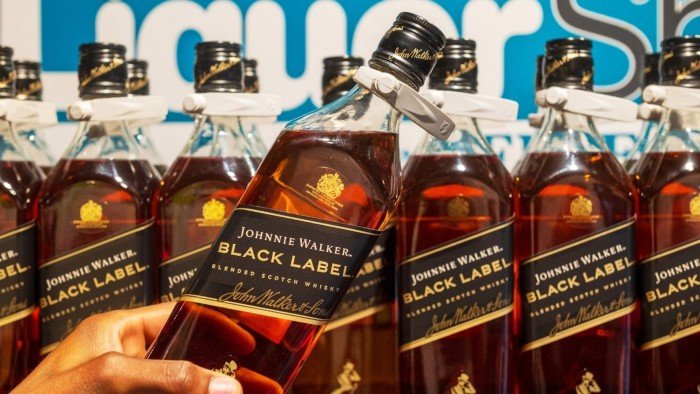Unlock the Editor’s Digest for free
Roula Khalaf, Editor of the FT, selects her favourite stories in this weekly newsletter.
Sometimes rhetoric trumps numbers. Diageo issued predictably ghastly results on Tuesday — operating profit fell almost 30 per cent year on year — but the troubled drinks maker, its last chief executive freshly ousted, is on a well-signposted path to slash debts and stimulate growth.
New boss Nik Jhangiani may only be an interim CEO, but he has waded in with a sense of command. The former chief financial officer, elevated last month after Debra Crew’s exit, starts his tenure with a fair bit of kitchen-sinking: a hefty $1.4bn of impairments and other one-off charges. Investors rewarded him with an early 7 per cent pop in the share price.
The maker of Smirnoff vodka and Johnnie Walker whisky is already running ahead on cost-cutting, with it now looking at $625mn in cash savings over the next three years, up from the previous $500mn. Half of the total savings will be reinvested.
Jhangiani is also trimming capital expenditure to mid-single digits as a percentage of sales. That compares with roughly 7 to 8 per cent over the past four years and suggests a return closer to 2021 levels of spending. Growth, meanwhile, will come from better differentiating between markets to cater for varying drinking cultures, even in neighbouring countries.
Whether or not it will work depends on other factors too. The industry is wrestling with changing customer habits, although their exact nature remains uncertain. Are Generation Z — and to some extent their parents and grandparents — really cold-shouldering alcohol, or are they just pressed for cash? Will the impact of tariffs tip more drinkers into cheaper, unbranded hooch?
Diageo’s expansive portfolio, spanning ready-to-drink concoctions and zero-alcohol beverages, gives it a fighting chance of keeping drinkers on board. But big markets, specifically the US and China, are under pressure. Civil servants in China — whose banquets are typically lubricated with baijiu, a spirit produced by Diageo’s subsidiary Shui Jing Fang — are under orders to tamp down on drinking. Managing stockpiles is a global challenge.
Diageo’s specific challenges limit the read-across to Pernod Ricard, its smaller rival, which reports annual results later this month. Like Diageo, the maker of Absolut Vodka is clearing its drinks cabinet of non-core brands and cutting costs.
Strictly speaking, these companies are purveyors of the sort of staple consumer goods that ought to deliver returns that are both steady and decent. Whether measured over one, three or five years, they have done neither. Diageo trades at about 15 times forward earnings, according to LSEG; as recently as 2021, it was close to twice that.
Jhangiani plans to change this underperformance, restoring Diageo to a “top quartile” consumer company measured on total returns. True, bold pledges carry somewhat less weight when their bearer’s job title starts with “interim”. But it’s a while since Diageo has sounded this promising.
louise.lucas@ft.com
